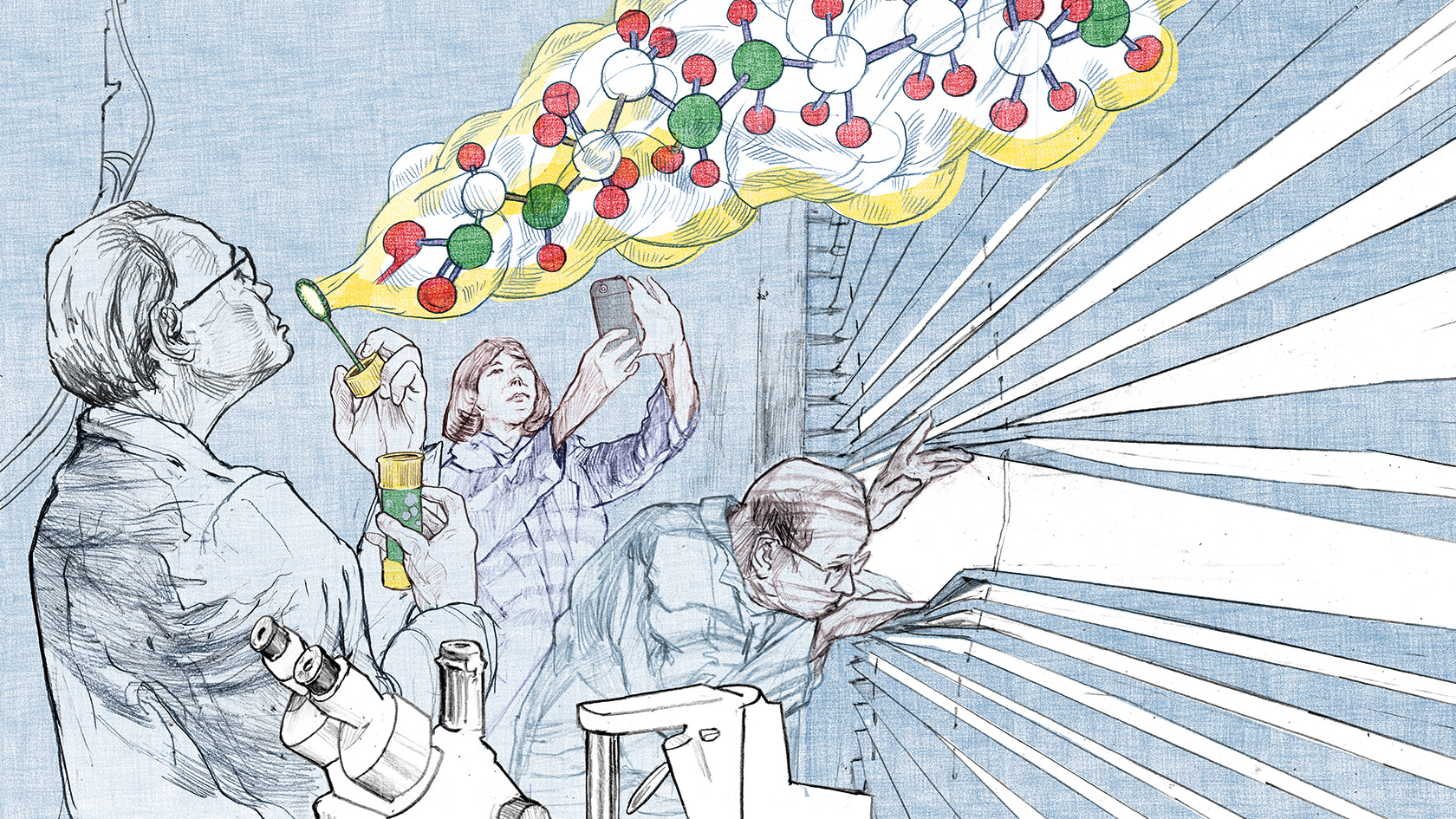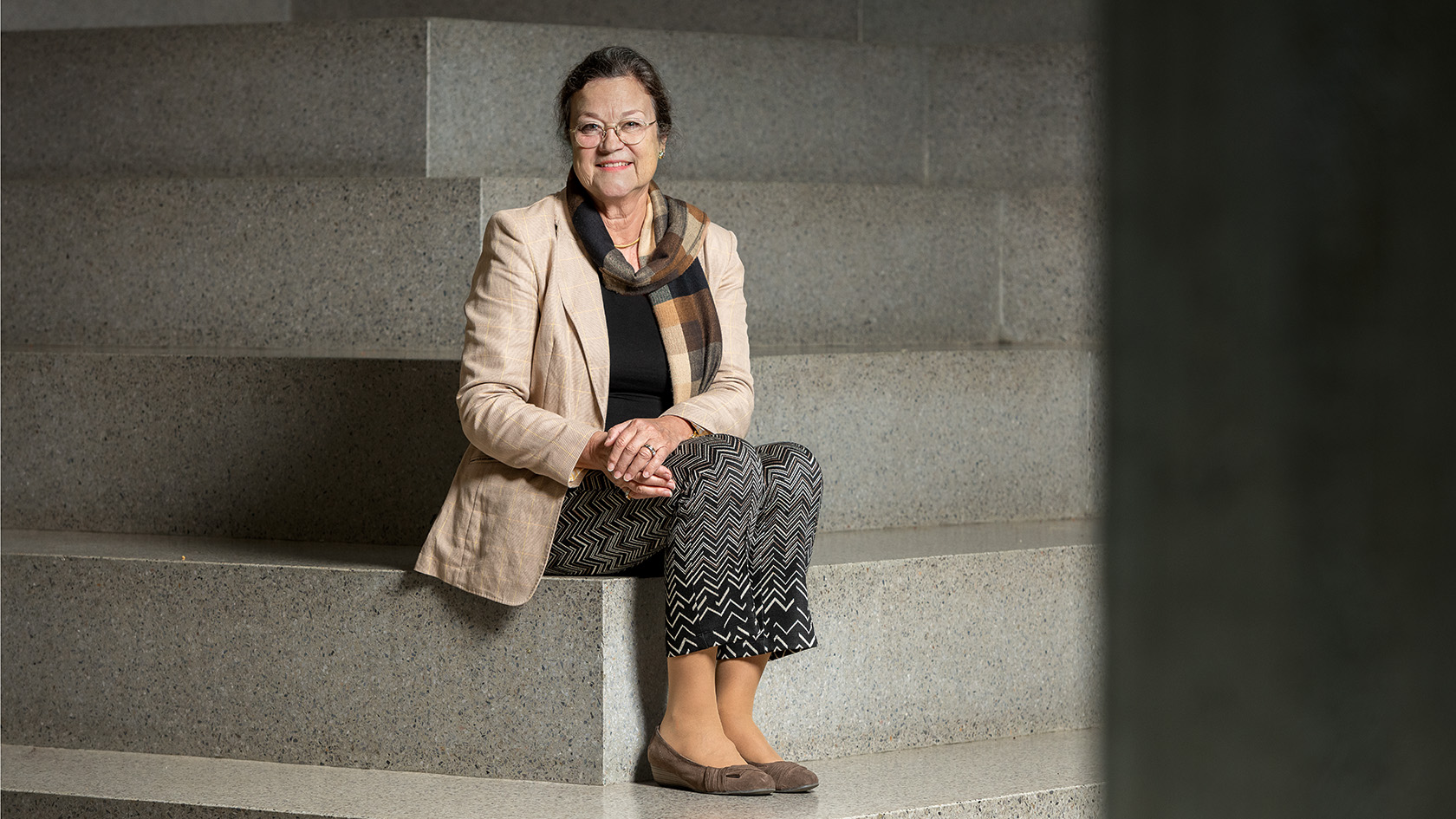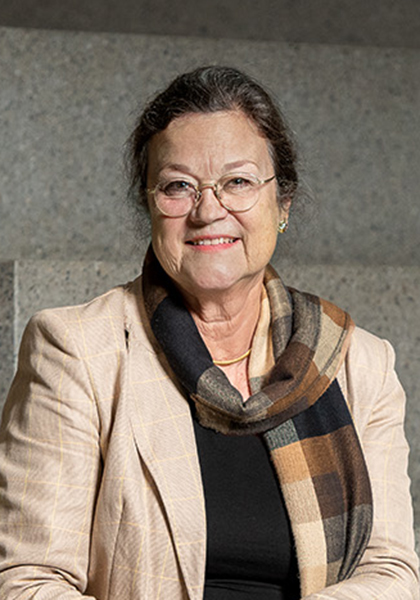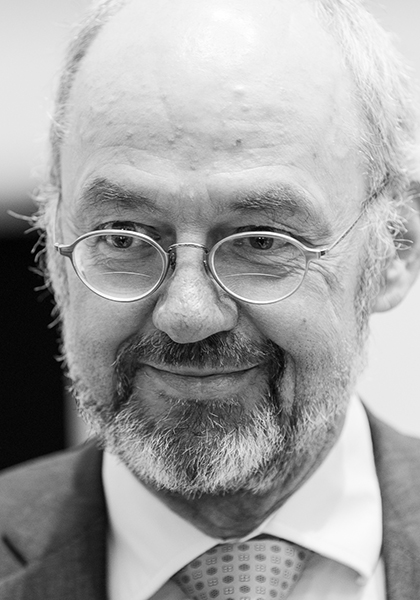Researchers Who Cheat

Gregor Mendel did it, Ptolemy did it, even Isaac Newton is suspected of embellishing observations and data for the sake of his theory. The Austrian priest Mendel, who discovered the fundamental laws of heredity through his pea experiments in the 19th century, is thought to have adjusted his data – as they were simply too good to be true. Meanwhile, Ptolemy listed celestial bodies in his catalogue of fixed stars that he could not possibly have observed from Alexandria. And Isaac Newton used a fudge factor to get his measured values on the speed of sound to correlate with his theory. We might conclude that embellishing, or even inventing, data has a certain tradition in science.
Indeed, barely a week goes by in which a scandal doesn’t shake the scientific community. A recent example is the case of Alzheimer’s researcher Sylvain Lesné from the University of Minnesota. He is suspected of falsifying data over multiple years on a protein that is thought to play a key role in the disease process. His experiments, which were published in leading journals, could have set fields of Alzheimer’s research on the wrong track for years. And millions of dollars of research funding would have been burned to confirm phantom results in futile experiments.
Lesné’s case is serious and exceptional in its magnitude. However, it illustrates how higher education institutions have every interest in preventing scientific misconduct with all the tools at their disposal. This is not just about the reputations of the institutions concerned and the fates of individuals, but about science and its very credibility. “Scientific research serves to establish the truth, so the published findings simply have to be right,” says Monica Zwicky, retired professor of developmental biology.
We therefore have to ensure that work is done in line with the principles of good scientific practice. At UZH, the integrity ordinance has set the standards in this regard since 2020 (see adjacent box). Zwicky is one of three ombudspersons who deal with scientific misconduct at UZH within the new ordinance. She was previously ombudswoman at the Faculty of Science from 2003. She has been handling questions of scientific integrity for many years and knows where the issues lie.
Theft of ideas and supervision problems

“Ninety-nine percent of UZH members are fair and stick to the rules,” says Zwicky, “but there are a very small number who disregard the principles of good scientific practice.” When people contact her, the issues often concern authorship, theft of ideas, supervision problems for doctoral theses, or (a lack of) acknowledgment. Outright allegations that data have been falsified do occur, but are rare. “In the majority of cases, those affected are seeking advice and often we can mediate and sort the situation out,” says Zwicky.
If the problem has been festering for longer and has escalated, mediation or an extensive investigation may be necessary to establish whether the case involves scientific misconduct. In serious cases, the Executive Board of the University is informed, which can initiate a procedure with Wolfgang Ernst, the research integrity delegate.
Monica Zwicky herself experienced a blatant case of scientific fraud during her time as a PhD candidate. In the early 1980s, Karl Illmensee from the University of Geneva was reporting on successful cloning experiments involving mice. His cell nuclear transfers to egg cells claimed to have produced the first cloned mammals. This reported finding caused a sensation in the international media. At the time, Zwicky was working as a developmental biologist in Rolf Nöthiger’s laboratory at the University of Zurich, specializing in the genetic mechanisms of sex determination.
When Illmensee’s falsifications came to light in 1983, the scandal sent shock waves through Nöthiger’s lab because Zwicky’s doctoral supervisor was a friend of Illmensee’s. “We were all bewildered and hugely disappointed,” recalls Zwicky. The fraud was uncovered because a number of colleagues were unable to repeat the experiments. “This case brought home to me the damage that falsification can do, and how trust in science is lost,” says Zwicky.
As ombudsperson at UZH, she has never encountered such a serious case in which spectacular results are simply made up or fabricated. Often it is cases of disagreements in teams that are brought to her attention if, for example, people feel neglected or badly treated. Since the close, almost family-like working set-up in research teams can provoke interpersonal conflicts, a committee with several people is always responsible for doctoral candidates at UZH.
This alleviates dependencies. An additional problem is the pressure to publish, which is particularly high for junior researchers. It is no coincidence that the most common issue that Monica Zwicky is asked about is authorship. For example, the case in which a publication mentioned the doctoral supervisor but not the doctoral candidate conducting the experiments. Here, the damage can at best be rectified through an amendment or corrigendum in the journal in question.
But there are also more serious cases, where data from an experiment or images are contested and there has been a clear violation of academic integrity. “If the suspicions of misconduct are substantiated during my preliminary investigations, I inform the Executive Board of the University and the person accused,” says Zwicky.

Ninety-nine percent of UZH members are fair and stick to the rules. But there are a very small number who disregard the principles of good scientific practice.
Tough sanctions
Serious cases of scientific misconduct are referred by the Executive Board to Wolfgang Ernst, the UZH research integrity delegate and professor of Roman law. “I’m the man for the difficult business,” says the lawyer, comparing his role to that of an investigating judge. Ernst is talking about the two to three cases a year that keep himself and his deputy Caterina Nägeli very busy and generate “an enormous amount of work”. These are usually complex cases involving expert opinions and where everything must be legally watertight. They therefore have to be investigated thoroughly and handled fairly. “I see my role as conducting the proceedings with the utmost transparency and respect for the rule of law,” the lawyer says.
His role as an independent mediator means that he is employed part time at UZH, alongside his principal research and teaching activity at the University of Oxford. In the final report for the attention of the Executive Board of the University, Ernst sets out to what extent the suspected misconduct can be confirmed, and proposes sanctions, which the Executive Board can – but does not have to – impose. A look at UZH’s integrity ordinance shows that scientific misconduct is heavily penalized: the measures available to the Executive Board of the University range from blocking or reclaiming research funding and stripping titles to dismissal or other personnel measures.
In order to investigate the often complicated circumstances, Ernst can resort to a range of technical tools to detect falsification and fraud in collaboration with Martin Hanselmann from the Research Integrity Coordination Office. These include programs to analyze datasets, image analysis tools and plagiarism software. But all these technical resources are useless without an initial suspicion. “We’re reliant on whistleblowers to draw our attention to the misconduct in the first place,” says Ernst.
While whistleblowers are protected as much as possible, remaining anonymous can be difficult if the accused party has to be shown incriminating material or authorship is contested. This is a dilemma, and there are cases in which those seeking advice withdraw their accusations due to their proximity to the accused, says ombudsperson Zwicky.

We’re reliant on whistleblowers to draw our attention to the misconduct.
Pressure to publish and questions of character
Ernst believes that the procedure introduced in the integrity ordinance has proven effective. For the small number of cheats who fail to follow the rules, it provides a “robust and efficient process” that also confers rights to the accused parties. Ernst does not wish to speculate on what motivates people to violate the established rules. Clearly the world of research is moving ever faster, particularly in the natural sciences and medicine, and the pressure to publish has barely subsided despite open science.
But Ernst agrees with Zwicky that it is ultimately a question of character that dictates whether researchers act with integrity and follow the rules or not. “Even scientists are not immune to human weakness,” says the lawyer. And the same goes for giants like Newton or Mendel, as the history books tell us, but they were other times – and the difference is that nowadays there is zero tolerance.
This article first appeared in the UZH Magazin 4/22